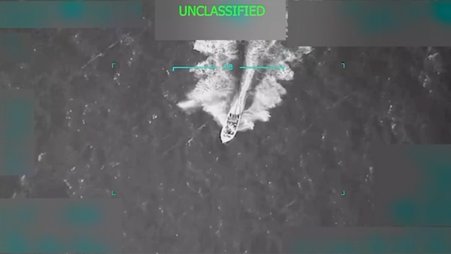Dear Friend of Press Freedom,
I’m Lauren Harper, the first Daniel Ellsberg chair on government secrecy at Freedom of the Press Foundation (FPF), and welcome to “The Classifieds.” Read on to learn about this week’s top secrecy news.
Reform the Espionage Act before Trump turns it on journalists
Earlier this year, leaks to the press undercut the Trump administration’s justification for invoking the Alien Enemies Act to deport Venezuelan nationals to a Salvadoran prison. The administration lambasted the journalists who reported the information, which was initially classified, on the spurious grounds that doing so harmed national security (a Freedom of Information Act release to FPF vindicated the initial reports and disproved any claims that the leaks harmed national security).
More recently, another leak suggests that the U.S. attack on Iranian nuclear facilities was not as successful as the administration claimed.
The Trump administration is reportedly again furious and looking for ways to weaponize the outdated Espionage Act to “intimidate news organizations” away from publishing leaked classified information that it claims threatens national security.
To state the obvious: The First Amendment should take precedence over the government’s classification claims. (To state what may be less obvious: The government’s classification claims often aren’t worth the paper they are stamped on. Don’t just take my word for it, check out these examples here, here, here, here, here, here, and here.)
If any member of Congress wants to ensure reporters can continue doing their necessary work at this precarious moment for press freedom, they should follow Rep. Rashida Tlaib’s example and introduce meaningful reforms to the Espionage Act to prevent the administration from targeting journalists.
Will that multimillion-dollar bribe get you a Trump presidential library card?
Paramount’s decision to pay $16 million to settle a frivolous lawsuit brought by President Donald Trump over the editing of a “60 Minutes” interview is, as my colleague Seth Stern says, “a dark day for press freedom.” Sen. Elizabeth Warren adds that “it looks like bribery in plain sight.”
But too many reports have parroted the assertion that the settlement money will go to Trump’s presidential library.
This is misleading.
As of writing this, the Paramount settlement is not public. But, if it follows ABC’s December 2024 settlement, the money will not go directly to the building of a government-run library. It will go to the establishment of a private presidential foundation with wide discretion about how to spend the money.
The foundation could build a library if it chooses, or it could build a museum, or it could build something else entirely. Or it could build nothing at all.
We shouldn’t uncritically repeat the administration’s claims that Paramount’s money will go towards a library. And if Congress wants to make it more difficult for the Trump administration to use the ruse of building a library to funnel bribes through, then it should reform the rules around contributions to private presidential foundations and redefine their relationship with government-run libraries.
If the FBI has evidence of Chinese election interference, it should release the documents in response to FOIA
FBI Director Kash Patel recently declassified documents allegedly showing the bureau suppressed intelligence about Chinese interference in the 2020 election. He then provided the documents to Sen. Chuck Grassley, who chairs the Senate Judiciary Committee. (I filed a FOIA request for the documents several weeks ago but have not received a response).
Sen. Grassley released a report yesterday saying the documents show “the FBI suppressed intelligence of alleged Chinese interference in the 2020 election to insulate then-FBI Director Christopher Wray from criticism, after Wray provided inaccurate and contradictory testimony to Congress.”
Maybe they do, but there’s little way for the public to tell.
When you try to read the documents posted on the senator’s website, you either get a notification that your request is “not accepted,” or you are directed to a highly redacted document that, unlike a FOIA release, contains no markings indicating the government’s basis for withholding information.
If Patel or Sen. Grassley really wants to promote transparency and accountability, then the FBI should release the documents in response to FOIA. This would, among other things, allow the public a chance to argue for further redactions of these supposedly bombshell documents.
Using public records requests to fight secrecy
I recently hosted a webinar with Washington Post FOIA Director Nate Jones, MuckRock CEO Michael Morisy, and investigative journalist and author Miranda Spivack to learn how journalists can use public records requests to fight dangerous government secrecy. If you missed the event and want to hear expert advice on accessing both local and federal records, as well as learn what stories our guests most hope to tell with their outstanding FOIA requests, check out the recording on FPF’s YouTube channel.
Transparently yours,
Lauren Harper
Daniel Ellsberg Chair on Government Secrecy
Freedom of the Press Foundation





